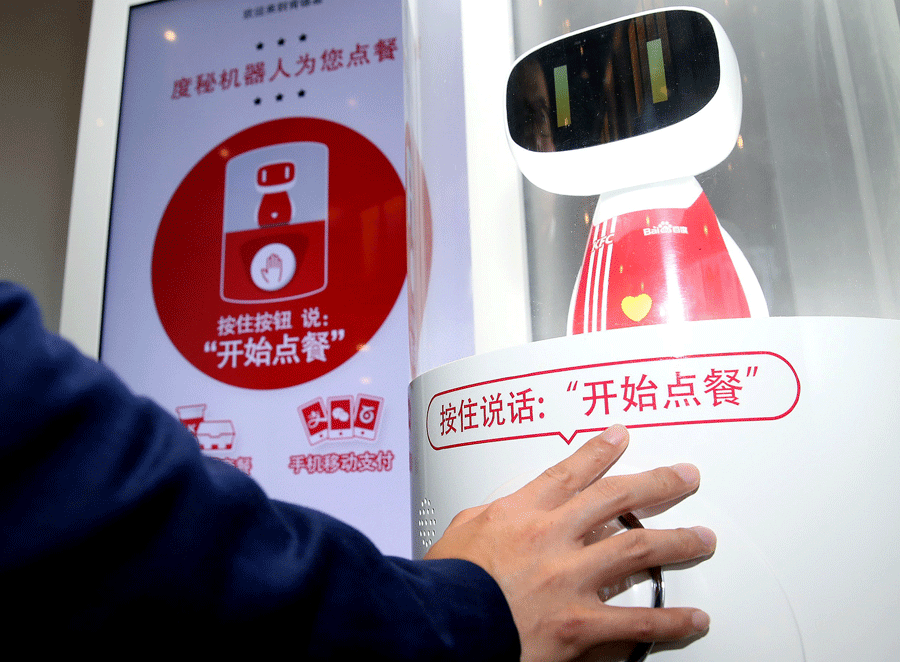Robot drinks stir man vs machine debate


Tireless worker
But Ratio's crowning glory is something far more tangible. It is also what makes this place the first of its kind in China.
Here, customers will not find baristas or mixologists preparing the drinks. A solitary Italian-made robotic arm does the job, spinning around its enclosure where different cups, espresso machines and liquors are located within its perfectly tuned grasp.
Meanwhile, Ratio's employees, all of whom are trained mixologists or baristas, perform a similar role to sommeliers, making recommendations to customers.
Most customers are fascinated as they watch the $30,000 robot go about performing its tasks with precision. But while the guile of the robotic arm has left them mesmerized, it has also raised questions about the growing prevalence of automation in the workplace and how it will affect people.
In an interview with CNBC last year, Yum Brands CEO Greg Creed was quoted as saying that machines could replace people in the food and beverage sector by the mid-2020s.
Much of Yum's business in Shanghai has already embraced automation. At Shanghai Pudong International Airport, KFC customers place their orders at an automated kiosk. At Pizza Hut, a robot greets customers at the door.
According to the McKinsey Global Institute, up to 800 million people worldwide could be displaced by automation by 2030.
But Pathross insists that his new business venture is not about diminishing the relevance of humans in the workforce.
"What we have here is a collaborative effort. The robots handle about 80 percent of the work. The last 20 percent, which involves tasks such as garnishing and adding ice, is performed by humans. The garnishing process is absolutely important because it affects perceived value," said the 39-year-old, who used to be chief digital officer with Yum Brands.
"This is not about replacing humans with machines to save money. We think it's a more efficient way of doing cocktails and coffee. It frees humans up from menial tasks and allows them to focus on other areas such as creating recipes. In fact, we can now afford to pay our staff more because we require less manpower in other areas. My savings are also reinvested into obtaining quality ingredients."
























